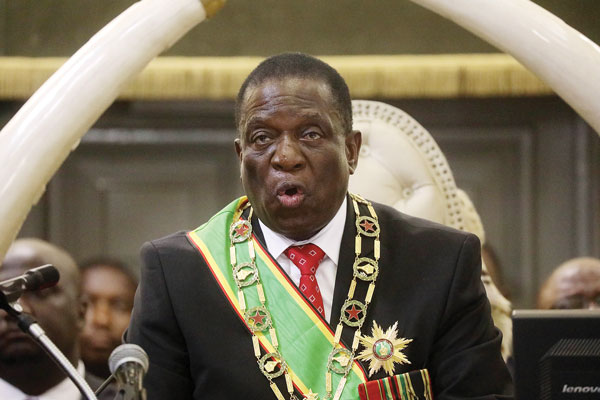
A REPORT by the United Nations special rapporteur on the Rights to Freedom of Peaceful Assembly and of Association, Clément Nyaletsossi Voule, makes for interesting reading.
NewsDay Comment
Zimbabwe, he noted, was suffering from political polarisation and poor governance while a fragile economy has added to people’s discontent with the government of President Emmerson Mnangagwa.
Mnangagwa has sought to crush any perceived discontent by using the military at every turn, which has not shied away from using live ammunition against unarmed civilians engaging in peaceful protests.
First, six people were shot and killed by the army after it intervened in the post-election violence on August 1, 2018. Then in January last year, 17 people were killed by security agents, according to human rights groups, while over 1 000 were treated for gunshot wounds as people went onto the streets to protest a 150% hike in the price of fuel.
Regarding the use of force, the commission concluded that “the use of live ammunition directed at people, especially when they were fleeing, was clearly unjustified and disproportionate” and it added that “[t]he use of sjamboks, baton sticks and rifle butts to assault members of the public indiscriminately was also disproportionate,” Voule wrote in a report released on Monday.
“In the light of such events, the special rapporteur is deeply troubled to observe that following these major events, which occurred between August 2018 and January 2019, there has been a considerable deterioration of civic space in the country, which has re-established an environment of persecution and fear.”
It is notable that Voule points out that despite constitutional and legal provisions allowing for the deployment of the military to maintain public order or manage a public emergency, the military forces were deployed without a clear mandate.
- Chamisa under fire over US$120K donation
- Mavhunga puts DeMbare into Chibuku quarterfinals
- Pension funds bet on Cabora Bassa oilfields
- Councils defy govt fire tender directive
Keep Reading
Equally damning was his observation that there was no appetite or intention to prosecute any alleged perpetrators of the human rights violations and killing of civilians.
The situation is getting grimmer in the country. Cash shortages have plunged the economy into disarray, and everyday life is getting increasingly tough with the prices of basic goods spiralling as the value of the Zimdollar currency is plummeting, while inflation is running at 737,26%.
Fuel shortages remain and despite that garages are now allowed to sell in hard currency, it is in short supply while the majority of workers are paid in the discredited Zimdollar currency. The already dire environment has been worsened by the COVID-19 outbreak, which has led to a nationwide lockdown since March 30.
With some opposition figures and civic groups organising a protest on July 31 to force the government to act on the deteriorating economic situation, the words of the UN special rapporteur are especially poignant.
“… the Special Rapporteur is of the view that, as a general rule, the military should not be used to police assemblies and that, in the exceptional circumstances in which this becomes necessary, the military must be subordinate to civilian authorities,” he said.
“For this purpose, the military must be fully trained, adopt and be bound by international human rights law and principles and any law enforcement policy, guidelines and ethics, and be provided with adequate training and equipment.”











